#character: thomas lexington
Explore tagged Tumblr posts
Text
Queer Horror
It's pride month so here is a (NOT complete) list of horror icons real and fictional who are of the LGBTQAI+ community. Writers / directors / Actors Oscar Wilde Clive Barker Caitlin R. Kiernan William Joseph Martin James Whale (director of Frankenstein) Ernest Thesiger (Doctor Pretorius in Bride of Frankenstein) Anthony Perkins Vincent Price David Geffen (producer of Interview with the vampire movie and Beetlejuice) Jonathan Frid (Dark Shadows) Louis Edmonds (Dark Shadows) Ed Wood Elvira (Casandra Peterson) Amanda Beares (Fright Night, 1985) Merritt Butrick (Fright Night Part 2) Roddy McDowall (Hell House, Fright Night, Fright Night: Part 2, and Carmilla) _________________________ Characters Mephisto (Faust, 1922) Countess Zeleska (Dracula's Daughter) Carmilla (The Vampire Lovers, 1970 and all film adapations of Carmilla) Louis, Lestat, Daniel Malloy, Armand (Interview with the vampire movie and show and The Vampire Chronicles book series) Claudia, Madeleine, Nicolas (Interview with the vampire TV series) Jerry Dandridge, Billy Cole, Peter Vincent, Evil Ed, and possibly Amy (Fright Night, original 1985 version) Regine and Belle (Fright Night part 2, 1988) Miriam Blaylock (The Hunger movie and novel by Whitley Streiber, along with its sequels) Marius (Queen of the damned movie and novels) Glen / Glenda (Seed of Chucky) Dracula (Marvel comics, Dario Argento's Dracula, Steven Moffat's Dracula, Frank Wildhorn's Dracula The musical) Alucard, Striga, Morana, (Castlevania) The Corinthian, Hal Carter, Wanda, Judy, Donna (Foxglove), Hazel, Alexander Burgess, Paul McGuire, Cluracaun, Mazikeen, Lucifer, Loki, Desire, Johanna Constantine, John Constantine, Rachel, Chantel, Zelda, Aristaeus the Satyr, Jim / Peggy, (Neil Gaiman's The Sandman) Echo, Ruin, Heather After (From Sandman spin-off comics) April Spink and Miriam Forcible (Coraline) Angela and Sera (Marvel comics) Sam Black Crow (American Gods) EVERYONE! - Anne Rice's Vampire Chronicles EVERYONE! - Lost Girl (TV series)
Snow White (Sleeper and the Spindle by Neil Gaiman) Dorian Gray, Lord Henry Wotton, and Basil Hallward (The Picture of Dorian Gray) Captain Shaekespeare (Stardust) Loki (all incarantions) John Constantine (All versions) Aziraphale and Crowley (Good Omens) Renfield (Original Dracula novel, speculated by scholars) Mephistopheles, Faust, and Satan - Dr. Faustus by Christopher Marlowe and Faust by Goethe. Carmilla and Laura (All versions of Carmilla) Eli and Oskar (Let the Right One In) Lily and The mermaid Queen (She-Creature, 2001 version) Radu (Dark Prince: The True Story of Dracula) Lexington (Disney's Gargoyles, not canon until the comics) Dorothy and Ruby AAK Red (Once Upon a Tme) Tara and Willow (Buffy The Vampire Slayer TV series) Lorne (Angel) Ethan, Dorian Gray, Angelique, and Professor Lyle (Penny Dreadful) Thelma Bates (Hex) Joe (Midnight Texas) Skully (Scary Godmother) Mitch (ParaNorman) Henry Fitzroy (Blood Ties) Thomas Jerome Newton (The Man who fell to Earth) Any Clive Barker character NOT confirmed to be straight is presumed LGBTQAI+. There are many, many more but my fingers are starting to ache and these are the ones I could think of off the top of my head.
13 notes
·
View notes
Text
Chapter 1-As I Live and Breathe

Summary: You were reassigned to work for the U.S. Marshal Service in Lexington…Which also happens to be the department that your Uncle Art is in charge of. He was glad to accept you but knew it would be a blessing and a curse to have you as one of his officers. You are a complete professional in the field, but something about this new team brings out your inner mischief. Especially since your childhood friend, Tim Gutterson, is now one of your co-workers.
Author Notes: Character Intro, Tim Gutterson x Female!Deputy, Deputy Marshal Gutterson x Female!Deputy, Y/N, L/N, U.S. Deputy Marshal Service, Justified T.V. show references, Raylan Givens, Rachel Brooks, Art Mullen (Y/N’s uncle), Military/Law Enforcement terminology, Mentions weaponry and alcohol, sexual innuendos, a splash of sexism.
*While writing this, I imagined the character having a southern accent as well, but I encourage you as the reader, to use your imagination to your heart's wildest desires*
~~~~~~~~
You step out of your Jeep and inhale the familiar scent of hot asphalt and Virginia bluebells. You forget how dry it gets in Kentucky as you cough after getting a mouthful of dusty air. You look up at the Lexington Federal Courthouse, let out one last exhale and proceed to the Marshal’s entrance.
You approach the security counter already emptying the contents of your pockets into the basket.
“Ma’am this is the Deputy Marshal’s entrance, I’m gonna need you to go around to the front and-“
You flash your badge to the suited man speaking to you. His mouth fell open from shock and embarrassment.
“Oh…I didn’t know you-“ He tried to continue.
You cut him off right away.
“Right, it was an honest mistake that a woman lookin’ like me could possibly be any kind of law enforcement. Ain’t no way they give a gal a shiney badge and a gun, is that what you were thinkin’?”
The man and his three other associates exchanged looks of confusion.
“May I have my affects back, please?” You ask.
The stupefied man offered the basket with your things in it. You pocket your keys, spare change and cuff key and walk on without another word wasted on security.
~~~~~~~~
You walk through the double glass doors of the Deputy Marshal office and see a few deputies talking to an FBI agent. You couldn’t help but overhear the comical exchange.
“Don’t play dumb with me, Deputy.” The FBI agent scolded to the blonde man seated behind the desk, mouth full of food.
“I’m not playing. I’m an idiot. You can ask anybody.” Deputy Tim Gutterson replied earnestly but playfully gesturing to the other deputies.

“And I can personally vouch for that.” You rang out for the whole office to hear.
The FBI agent, Tim, the other two deputies, and their Chief, Art Mullen, turn to look at you approaching.
Art chuckled and met you halfway. Tim smirked and hung his head.
“Y/N, as I live and breathe.” Art said extending his hand to shake yours, then pulling you in for a hug.
“Hey, Uncle Art.” You say hugging him back.
Raylan exchanged looks with Rachel who just shrugged.
“Come on over here, I want you to meet the rest of the A-Team.” Art said.
You both approach the group, all eyes on you.
“Y/N, this here is Raylan Givens. He came to us about a week or two ago from the Miami department.”
Raylan shook your hand with a dashing smile.
“Ma’am.” He stood to greet you.
“Pleasure’s all mine, Deputy. I read all about you going John Wayne on Thomas Buckley. Classy.” You say with an impressed smile.
Raylan laughed and began scratching the back of his head like a little boy all bashful.
Art continued. “One of my best deputies, Rachel Brooks.” He gestured to the female next to Raylan to which you also shook her hand.
“I believe it.” You say with a wink. Rachel smiled back.
“And this knucklehead is-“
“Thanks, Chief, but there’s no need for my formal introduction to Miss L/N.” Tim interrupted.
Art looked at Tim, then at you, then back at him.
“Deputy L/N to you, Mr. Gutterson.” You corrected.
Raylan, Rachel, and Art’s eyes widened. There was a touch of intensity in the air between you and Tim.
“Oh, so the rumors are true. You became the pin up girl of the United States Marshal Service.” Tim shot back smoothly.
You roll your eyes at Tim.
“Better than being known as the idiot of the United States Marshal Service.” You retorted.
Raylan and Rachel let laughs escape them.
“I like her.” Rachel said.
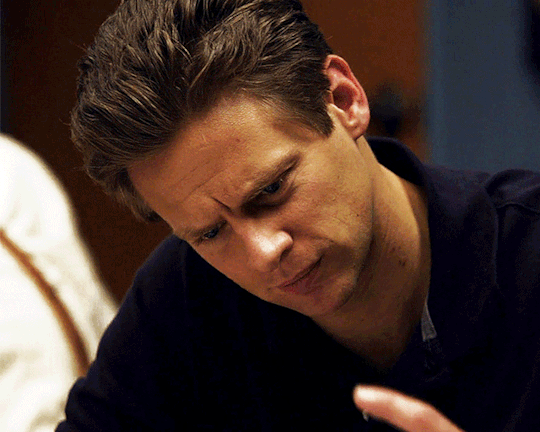
“Alright, now, Y/N can you please follow me to my office so we can properly in-process you to this department?” Your uncle was already exasperated by the amount of back and forth you started.
You flash Tim a mischievous smile then turn to face the other two.
“Pleasure meetin’ y’all.” You say to Raylan and Rachel with a wave.
They returned a nod and a smile. They then both looked over at Tim who conveniently made himself busy at his computer. He looked over at them after feeling their stare on him.
“What?” Tim asked.
“So, you’re not going to explain what all that was about?” Raylan asked.
“What all was what about?” Tim asked.
Rachel rolled her eyes at him.
“Obviously you knew her from before.” Rachel stated.
Tim looked back at his screen and paused.
“…Perhaps.” He finally responded.
Rachel and Raylan look at eachother and shrugged.
“Ok, Gutterson, you can stay all mysterious if you want. One way or another we’ll figure it out.” Rachel said.
“Who am I to interfere with your womanly urges to find out juicy gossip?” Tim said sarcastically without looking up from his work. “You ain’t gonna find out anything.” He added.
“We shall see.” Rachel challenged. Raylan just scoffed and redirected his attention to paperwork on his desk.
~~~~~~~~
After about an hour in a half in your uncle’s office, you emerge with Art in the lead.
“Ok, Y/N, this will be your desk.” Art motioned to the last desk right between Tim’s desk and his office.
Tim rolled his eyes and let out an audible, irritated sigh.
“Seems a bit crowded over here, Chief, are there any other desks available? A closet, perhaps?” You asked your uncle.
Rachel chuckled in amusement.
“You could share a desk with Tim if you’d like?” Raylan offered. “He’s dying for company I assure you.” He continued teasingly.
Tim shot Raylan an annoyed glance.
Art cut off the back and forth.
“This, is your desk, Deputy L/N.” He said sternly tapping the top of the bare desk surface. He turned around and went back into his office.
You put your side piece and your badge on your new workstation.
“Welcome home, sweetheart.” Tim said mockingly.
You shot a dull look at Tim. He winked at you.
Damn him and those blue eyes.
You exhale and look away from him.
“Don’t be thinkin’ those baby blues will get you anywhere, Gutterson.” You say attempting to hide a smile.
Tim totally caught it, though. He had a knack for noticing the tiniest details. It’s what made him an excellent sniper.
“No ma’am.” Tim replied with a smug grin.
~~~~~~~~
“Is that absolutely necessary, Y/N?” Tim asked you referring to your scented candle burning on your freshly cleaned desk.

“Smells bad enough in here to knock a dog off a gut wagon, Tim. The scent of Aspen Pine ain’t gonna kill you.” You respond.
Raylan laughed out loud.
“Knock a dog off a gut wagon, Y/N? Really?” Raylan asked you as he sat up in his chair to get a better look at you.
“What? Too old school holler even for you, Givens?” You snickered.
Raylan laughed. “No ma’am, just haven’t heard that saying since I was a kid, that’s all. Where you even from?” He responded.
“I was born in Maces Spring, Virginia. Most of my family is from there. Moved to Indiana around high school where I met this fine gentleman right here.” You gestured to Tim.
Tim scoffed.
“So, you do know Tim from before!” Rachel squealed.
“Yes ma’am, I do. Went to every homecoming and prom with him.” You confirmed.
Rachel let out a hearty laugh, as Raylan shot Tim a surprised glance.
Tim rolled his eyes, dropping his head back onto his chair.
“Didn’t think Tim was the….dancing, tuxedo, boutonniere type a guy?” Raylan said mockingly.
You look over at Tim.
“He isn’t. He wore khaki cargo pants, a button up, and had one of his daddy’s flasks filled with Wild Turkey as a belt buckle.” You explained.
Rachel covered her mouth so she wouldn’t snort from laughter. Raylan chuckled.
“Wow, Tim.” Raylan said rather loudly, utterly shocked.
“Ok, get your jabs in now, Y/N. Your time will come for humiliating pastime anecdotes.” Tim said pointing at you with a roguish smirk.
“Bring it, Gutterson.” You reply leaning on your elbows across your desk getting closer to him. “Rachel, I’ll have to tell you about the time I snuck under the bleachers with this one during a football game!”
Rachel fanned her face, mocking a rising temperature, “Oooo girrrrrl.” She keened.
Tim bit his bottom lip, then side eyed you. You flash him a flirtatious smile and a wink.
You both remembered that night…And the many nights that occurred after that.
“If we are quite finished here, I’d like the four of you to meet me in the conference room, stat.” Art announced poking his head through his office door in an authoritative, fatherly tone.
Tim was the first to proceed everyone to escape the torturous ridicule you and Rachel caused him.
Rachel walked over to you and hooked your arm.
“We’ll have to have girl’s night. I’ve been the only woman on this team for awhile. It’s about time another adult was brought on to help me handle the boys.” She whispered to you. You both giggle
“I heard that.” Raylan shouted over his shoulder.
~~~~~~~~
#justified#tim gutterson#raylan givens#rachel brooks#art mullen#us marshals#tim guttersonxfemale reader#jacob pitts#timothy olyphant#erica tazel#nick searcy#kentucky#lexington#military#law enforcement#wild turkey#hillbilly#redneck#southerners#harlan#the holler#hbo max#boyd crowder#ava crowder#bless your heart
59 notes
·
View notes
Photo

Book review: Horse by Geraldine Brooks
I thought this one was good on the whole. It is about the racehorse Lexington, who won 6 of 7 races and became the leading US sire for 16 years, and his groom Jarret. The book’s chapters change point of view frequently to include both major and minor characters, and the time also changes, spanning from 1850 when the horse was born to the present. There are some additional characters of both major and minor importance without chapters devoted to them. The book is extremely well researched, and in the afterward Brooks explains which people and events were fictionalized and which were real. She also has a vast vocabulary, and I learned many news words. My main criticism is that the relationship between Jess and Theo felt contrived at times in regards to racial issues and some other things. The characters of Theo and Jarret are also practically perfect, to the point where Theo is martyred at the end. Again, it just felt contrived at times.
The characters who have their own chapters are as follows:
Theo - a well educated and polite PHD student who lives in Washington D.C. in the present day. He is the son of 2 diplomats and has an international background. He helps a widowed woman across the street from him, even though she has been racist towards him. She begrudgingly says he can take whatever he wants from a pile of junk she has at the curb. While initially disinterested, he caught sight of an old painting of a horse and decided to take it.
Jarret - Jarret is the son of a Harry Lewis, a thoroughbred training prodigy. Harry Lewis was enslaved, but was allowed to buy himself freedom. Jarret is still enslaved, but Harry convinced his employer Dr. Warfield to buy him so they could be together. Harry had the idea to breed Warfield’s mare Alice Carneal to the leading sire Boston, who later died that year. Thus, Lexington was born, although he was originally named Darley. Warfield gave the horse to Harry as part of his wages, and Jarret and him were together from the time the colt was born. Jarret was Lexington's groom, and he was sold with Lexington twice.
Thomas J Scott - a famous painter of thoroughbreds who included accurate depictions of Jarret with Lexington in some of the paintings he did of the stallion. He knew Jarret and the horse from the beginning, and they crossed paths again over the years. Scott is the artist of the horse painting Theo found, which turned out to be of Lexington. Theo takes an interest in his works because his thesis is about cases where African Americans actually were depicted accurately in the works of that time.
Jess - An Australian who moves to America to work at the Smithsonian, Jess is obsessed with bones. Her job is to clean and set various animal skeletons for the museum in the osteology prep lab she manages. She is asked to locate the skeleton of a horse that has been forgotten about and moved to the attic. The horse turns out to be Lexington. She eventually crosses paths with Theo, and the two date after a rocky start where she thought he might be trying to steal her bike, which was actually his and turned out to be identical to hers.
Mary Bar Clay - she is one of the granddaughters of Elisha Warfield who lives on his farm. Her father is Cassius Clay, an American politician and abolitionist. She is a great rider and wants to be friends with Jarret, often putting him in dangerous situations as a result.
Martha Jackson - a high end art dealer in Jackson Pollack’s circle who rose to prominence in the 1950s. One of Scott’s paintings of Lexington came into her possession, and it was the only non-contemporary work she owned.
17 notes
·
View notes
Text
Harold C. Goddard - The Meaning of Shakespeare, Volume 2 (Phoenix Books) (1951).pdf Honor Matthews - Character and Symbol in Shakespeare’s Plays_ A Study of Certain Christian and Pre-Christian Elements in Their Structure and .pdf Hugh Craig, Arthur F. Kinney - Shakespeare, Computers, and the Mystery of Authorship (2009).pdf Ivo Kamps, Karen L. Raber, Thomas Hallock - Early Modern Ecostudies_ From the Florentine Codex to Shakespeare (2008).pdf J. M. Evenson - Shakespeare for Screenwriters_ Timeless Writing Tips from the Master of Drama-Michael Wiese Productions (2013).epub James A. Knapp (auth.) - Image Ethics in Shakespeare and Spenser-Palgrave Macmillan US (2011).pdf James C. Bulman - Shakespeare, Theory and Performance-Routledge (1995).pdf
James Shapiro - A Year in the Life of William Shakespeare_ 1599-HarperCollins (2005).pdf Jan H. Blits - The Soul of Athens_ Shakespeare's 'A Midsummer Night's Dream'-Lexington Books (2003).pdf Jeffrey Knapp - Shakespeare Only (2009).pdf Jennifer Hulbert, Robert York, Kevin J. Wetmore - Shakespeare and Youth Culture-Palgrave Macmillan (2006).pdf John D. Cox - Seeming Knowledge_ Shakespeare and Skeptical Faith (Studies in Christianity and Literature) (2007).pdf John Drakakis, Dale Townshend - Gothic Shakespeares (Accents on Shakespeare) (2008).pdf John Elsom - Is Shakespeare Still Our Contemporary_ (1990).pdf John Joughin - Philosophical Shakespeares -Routledge (2000).pdf John Michael Archer - Citizen Shakespeare_ Freemen and Aliens in the Language of the Plays -Palgrave Macmillan (2005).pdf
0 notes
Photo




Alec Lightwood attributes starting with the alphabet S.
#shadowhuntersedit#mdaddarioedit#matthew daddario#aleclightwoodedit#alec lightwood#mine#matthewdaddarioedit#character: thomas lexington
696 notes
·
View notes
Text
A Simplified Retelling of the Life of Thomas Paine
Note: This post is mostly a compilation of important Events in the Timeline of Thomas Paine’s Life. It doesn’t go very in-depth on his Character or Personal Life. Any further questions are encouraged and appreciated. Also, this was meant to go on my other account, @publius-library, but I’m leaving it as the last informational post on this blog.
Thomas Paine was born on January 29, 1737, in Norfolk, England to a conservative, religious Family. This is Ironic, considering his Politics later in Life. He received a basic Eduction, teaching him rudimentary Reading, Writing, and Arithmetic. At the age of 13, Paine began to work with his Father as a corset Maker, the first Occupation in a long line of many other failed attempts.
Eventually, Paine maintained a job as an Officer of Excise for a period of Time. His job was to find Smugglers and collect Taxes on Liquor and Tobacco. During this Time, Paine had two unsuccessful Marriages, and an unhappy Career, which ended in an argument over his insufficient Pay in 1772.
Then, Paine met Benjamin Franklin in London, who advised him to go to America, and gave him several Letters of recommendation. Paine listened, and arrived in Philadelphia on November 30, 1774. Franklin’s Son-in-Law introduced him to Robert Aitkin, whom he helped form the Pennsylvania Magazine, which Paine edited and wrote poems and articles (including an attack on slavery) for during a Span of 18 Months.
After the Battle of Lexington and Concord, Paine published his Opinion that the American Cause should be a demand for Independence, not a Tantrum over Taxes. His Patriotic Fervor became more known to the Public when he published Common Sense on January 10, 1776. The fifty-page Pamphlet sold over 500,000 Copies within a few Months. Paine’s strong Words were used in similar Documents, such as the Declaration of Independence.
Paine continued to add Fuel to the American Flame by publishing 16 other Papers (while serving as an Aide-de-Camp to Nathanael Greene), entitled The Crisis, between 1776 and 1783, which he signed under the pseudonym, Common Sense. The First of these Papers was published on December 19, 1776, when the Continental Army was facing potential Ruin, so the Paper was read Aloud to the Troops, per Washington’s orders.
“These are the times that try men’s souls. The summer soldier and the sunshine patriot will, in this crisis, shrink from the service of his country; but he that stands it now deserves the love and thanks of man and woman. Tyranny, like hell, is not easily conquered; yet we have this consolation with us—that the harder the conflict, the more glorious the triumph.” -Thomas Paine, 1776
Combined with the Inspiration Soldiers drew from the Battle of Trenton, caused the American Troops to reenlist on January 1st, which previously had been doubtful.
Paine was appointed as the Clerk of the General Assembly of Pennsylvania on November 2, 1779 after an unsuccessful career on the Committee for Foreign Affairs. From this position, Paine had many Chances to observe the state of Continental Troops. Paine took $500 from his own Salary, and started a Subscription for relief of Soldiers.
After the War came to it’s conclusion, Paine refused to accept Compensation for his Writings in order to keep the prices of the Publications cheap and accessible for all Citizens. As a Result, Paine faced many financial Hardships, and petitioned Congress for financial Support, which was backed by George Washington. However, this Petition was buried by Paine’s rivals, although he was given 500 pounds and a New York farm by the State of Pennsylvania. In his personal life, Paine dedicated his Time to Inventions, which included an iron Bridge without piers, and a smokeless Candle.
In April of 1787, Paine left for Europe to promote his Bridge across the Schuylkill River. In December of 1789, he published an anonymous warning against William Pitt’s attempt to involve England in a War with France over the Dutch Republic. He reminded the British Citizen that war had never had “but one thing certain, and that is increase of taxes.”
During his stay in Europe, Edmund Burke made an attack on the uprising of the French, which would later come to a boil as the French Revolution. Paine published the Rights of Man on March 13, 1791, and the pamphlet was a sensation, being widely distributed by Jeffersonian societies. Federalists weren’t fans of Paine at this point. Burke eventually replied to Paine, causing the latter to publish Rights of Man, Part II on February 17, 1792.
More than a Defense of the French Revolutionaries, the Rights of Man became an analysis of the core Reasons for European Insurrection, and potential Remedies for social issues, including arbitrary Government, Poverty, Illiteracy, Unemploym’t, and War. Additionally, Paine spoke out in favor of Republicanism over the traditional Monarchy, outlined plans for more easily accessible education, relief for the Poor, pensions for Elders, and public Works for the Unemployed.
This proved a bit too ambitious for Paine’s contemporaries. His works were interpreted as a rallying call for Anarchy. The English Government banned Paine’s work and put out a Warrant for the Author’s Arrest. At the time, Paine was en route to France to serve in the National Convention. Paine was tried in absentia, and was found guilty of Seditious Libel and was declared an Outlaw.
In France, Paine was enthusiastically received, despite poor French skills. Paine hailed the Abolition of the Monarchy, but showed great distaste for The Terror, which were the central sentiments of the American or Fayette (as in Lafayette) Party. Paine attempted to save Louis XVI, favoring Banishment over execution, which would lead to Diplomatic Troubles with the American Government, who had made their Treaty with the King.
As with many others in the American Party, Paine was imprisoned by Radicals from December 28, 1793 until November 4, 1794. He was released after Robespierre’s Execution, and was readmitted to the Convention, despite his severe Illness. While he was in prison, Age of Reason was published, and Part II after his release. In these writings, Paine showed that, although he prayed to a Deity, he deplored Organized Religion. Since nothing goes well for Paine for longer than a Year, he was deemed an Atheist, which was synonymous with uncivilized and without morals at the time. Paine published Agrarian Justice in 1797, where he attacked inequalities in property Ownership, which only multiplied his political enemies.
Paine remained in France until September 1, 1802, then returned to the United States, where he discovered that all his Services to the Country had been forgotten, and replaced with a Reputation of an Infidel. Paine entered into Poverty, poor Health, and Alcoholism, but still continued his Attacks on Social Injustice.
One other Publication I think is noteworthy to mention is the Prospect, which struck organized Religion at it’s core. In this edition of Thomas Paine Hates Everyone, he mentions the recent death of the First Treasury Secretary, Alexander Hamilton. After Hamilton’s death in the duel with Aaron Burr, the sitting Vice President, he was denied communion by a Minister. He speaks directly to that Minister when he writes,
“I regret the fate of General Hamilton, and I so far hope with you that it will be a warning to thoughtless man not to sport away the life that God has given him; but with respect to other parts of your letter I think it very reprehensible and betrays great ignorance of what true religion is. But you are a priest, you get your living by it, and it is not your worldly interest to undeceive yourself...
“You tell people, as you told Hamilton, that they must have faith. Faith in what? You ought to know that before the mind can have faith in any thing, it must either know it as a fact, or see cause to believe it on the probability of that kind of evidence that is cognizable by reason...” - Thomas Paine, 1804
Paine died in New York in 1809, and was buried in New Rochelle on his Farm.
Sources:
Thomas Paine - Britannica
Thomas Paine documents - Founders Online
Common Sense by Thomas Paine - The Project Gutenberg
The Crisis by Tom. P. - The Project Gutenberg
The Rights of Man by Tom. P. - The Project Gutenberg
Public Good by Tom. P. - Thomas Paine National Historical Association
Age of Reason by Tom. P. - The Project Gutenberg
Writings of Thomas Paine - The Project Gutenberg
#thomas paine#amrev#amrev history#the american revolution#american history#common sense#1700s#founding fathers#this man gives me heartburn (affectionate)
38 notes
·
View notes
Photo

Children and Childhood in the Works of Stephen King (Children and Youth in Popular Culture), edited by Debbie Olson, Lexington Books, 2020. Cover image by D-Keine/E+/Getty Images, info: rowman.com.
This unique and timely collection examines childhood and the child character throughout Stephen King’s works, from his early novels and short stories, through film adaptations, to his most recent publications. King’s use of child characters within the framework of horror (or of horrific childhood) raises questions about adult expectations of children, childhood, the American family, child agency, and the nature of fear and terror for (or by) children. The ways in which King presents, complicates, challenges, or terrorizes children and notions of childhood provide a unique lens through which to examine American culture, including both adult and social anxieties about children and childhood across the decades of King’s works.
Contents: Introduction: Stephen King’s Fictional Children by Debbie Olson 1970s 1. Degeneration through Violence and Stephen King’s Rage – Karen J. Renner 2. “Such a tragedy might have been averted”: Gothic Childhood, American Monstrosity, and the Male Gothic in Stephen King’s Carrie – Sarah Gray 3. The Children as Nemesis: a Reading of Stephen King’s “The Children of the Corn” and its Adaptations – Debaditya Mukhopadhyay 4. Of “Pagan Devil-Children” and Monstrous Plants: Vegetal World, Human Enslavement, and Precarious Existence in “Children of the Corn” – Tatiana Prorokova-Konrad 5. The Spectacle of Child-Suffering in Stephen King’s The Long Walk – Joshua Garrison 1980s 6. Monstrosity, Ethic of Care, and Moral Agency in Stephen King’s Firestarter – Ingrid E. Castro 7. Boys in The Body – Jennifer Manthei 8. “Not if I see you first”: Playspace, Friendship, and Nostalgia in Stand By Me – Shastri Akella 9. “Performing a kind of self-pyschoanalysis”: childhood revisited through writing (and reading) in The Breathing Method, Misery, Pet Sematary and Charlie the Choo-Choo by– Andy McCormack 10. “Animals, Innocence, and the Terr[or]tories in The Talisman” – Debbie Olson 11. “They Were Not All Found”: Ecosystems of Child Maltreatment in Stephen King’s IT – Brennan Thomas 12. “You’ll Float Too”: King and the Death of Childhood – James M. Curtis 13. “What an enormous act this is”: Children & Sexuality in Stephen King’s IT – Roxanne Harde 1990s 14. (Dis)Abling Dinah: Childhood Agency and the Allegory of the Cave in The Langoliers – Khara Lukancic 15. Girls With Teeth: Fan Identity in The Girl Who Loved Tom Gordon –Katharine McCain 2000s 16. Power, Vulnerability and Duality in Doctor Sleep – Lauren Christie 17. Seeing and Believing as a Child in It and The Outsider – Kristen Miller Hill
#book#essay#weird essay#horror essay#weird studies#horror studies#stephen king#children in horror#horror children
18 notes
·
View notes
Text
COMMEMORATIVE MESSAGE IN HONOR OF THE 244TH ANNIVERSARY OF THE INDEPENDENCE OF THE UNITED STATES OF AMERICA
“We, therefore, the Representatives of the UNITED STATES OF AMERICA, in General Congress, Assembled, appealing to the Supreme Judge of the world for the rectitude of our intentions, do, in the Name, and by Authority of the good People of these Colonies, solemnly publish and declare, That these United Colonies are, and of Right ought to be Free and Independent States; that they are Absolved from all Allegiance to the British Crown, and that all political connection between them and the State of Great Britain, is and ought to be totally dissolved; and that as Free and Independent States, they have full Power to levy War, conclude Peace, contract Alliances, establish Commerce, and to do all other Acts and Things which Independent States may of right do. And for the support of this Declaration, with a firm reliance on the protection of divine Providence, we mutually pledge to each other our Lives, our Fortunes and our sacred Honor.”
Ladies and gentlemen, to all the people of the United States of America, to all our remaining living veterans of the Second World War of 1939-1945 and of all conflicts past and present and their families, to our veterans, active servicemen and women and reservists of the entire United States Armed Forces, to all the immediate families, relatives, children and grandchildren of the deceased veterans, fallen service personnel and wounded personnel of our military services and civil uniformed security and civil defense services, to all our workers, farmers and intellectuals, to our youth and personnel serving in youth uniformed and cadet organizations and all our athletes, coaches, judges, team managers and front office staff, sports trainers and sports officials, and to all our sports fans, to all our workers of culture, music, traditional arts and the theatrical arts, radio, television, digital media and social media, cinema, heavy and light industry, business and the press, and to all our millions of people of the free world:
Today, as one united people, we mark yet another year since the pivotal events of July 4, 1776, the day in which the 13 colonies of then British North America officially declared independence from the United Kingdom as the first of the great republics of the modern world, the United States of America, through an historic act made by several representatives of the Second Continental Congress - Thomas Jefferson, John Adams, Benjamin Franklin, Robert Livingston and Roger Sherman – in the city of Philadelphia, Pennslyvania, and approved by almost the whole Congress on this very day 244 years ago led by its president John Hancock, which was the climax of a month-long efforts by its delegates on the future political destiny of the colonies, which had been at war against the Royal Navy and British Army for over a year. It was the definite act that sealed the decision made just 2 days ago by the Congress that given the circumstances faced by these colonies, the Congress, acting on the wishes of the whole people for independence, offically resolved that such is the desire of such a sovereign chamber representing the interests of the peoples of these colonies and thus it is their responsibilty to formally declare the political separation of these colonies from the British government and Parliament in London under the republican form.
The shots fired at Lexington and Concord 245 years ago was only the spark that began the long road towards the independence longed for by the American people and her armed forces supported by the governments, people and armed forces of France and Spain in the Revolutionary War,which would end in 1781 with the victory in Yorktown and the subsequent Treaty of Paris much later. It was only the first of many events that would shape the identity and character of our homeland to the superpower status and fame it enjoys today as a beacon of liberty and independence to the millions all over the globe. Today the billions of Americans remember with deep pride and honor the millions of men and women of her Armed Forces, the National Guard and state defense forces, as well as of the local state and community police and fire departments, beach lifeguard, forest firefighting and emergency management service units and the federal law enforcement organizations who in times of peace and war have offered their lives for the defense and protection of our homeland and people, many of them paying their ultimate sacrifices for the cause of the freedom and independence of the republic born out of the great revolution of 1776, as well as the people who through their time and talents brought glory and honor to the homeland and spread to their world the American way of life and culture, as well as our place as a sporting powerhouse, and ordinary citizens of all ways of life who even risked their lives to save others and thus placed their marks on the altar of our independent republic. In this wide land streching from the Pacific to the Atlantic, either in the snowy expanses of Alaska, the tropical lands of Hawaii, and in our vast and diverse landscape, whenever the people of all races, genders, nationalities and religions live, work and gather, as the nation has changed so much in these past 244 years, the character of this people will never change – a people humble, happy, loving, friendly and ready to share with others and the world at large.
We celebrate this great day in the dire circumstances of millions of Americans having suffered and died from the COVID-19 pandemic that has severely cripped the country, couped with a nationwide desire to unite millions of people to end the stigmas that have long divided this country by race and way of living. In these past months, the world witnessed how much this country has endured yet another sad chapter of its long history, first, thru the sacrifices and hard work of the millions of medical workers who have been working very hard to treat the sick even at the cost of their lives, especially those who have been afflicted by this pandemic, which has claimed thousands of lives nationwide, thru the hard work by those who have been making PPEs for the medical workers and face masks for the millions, as well as manufacturing equipment for the hospitals and medical centers, thru the best efforts by the medical profession to help produce vaccines and drugs against this pandemic, thru the hard work by those in the private sector who are still working to provide goods and services, thru the hard work and sacrifices by those working in agriculture, industry, the media and many other critical sectors, thru the brave services rendered by those who are a part of the armed forces, the National Guard, state defense forces, federal and local law enforcement and emergency units, and by the simple actions of millions in this great country not just to keep safe and healthy in the midst of this global crisis and support all those who have suffered a lot by it but also to ensure the preservation of national unity and the need to end the various social problems that this country and her people have encounted over the centuries. Having endured both national and global crises before, it is the fervent wish today of her millons of people that, united as one nation and people they will overcome these trials, rise above expectations, and become once more a beacon of hope and a helping hand to millions everywhere in the globe. It is the prayer of millions of her citizens of diverse faiths that the country recovers from this crisis as a united nation and for the unity and prosperity of all her citizens, the indigeous communities and the expat communties that call it home.
It is with great honor that Americans everywhere mark this great day with great but simple celebrations as the whole country celebrates yet another year of independence and recalls once more the sacrifices of the millions of men and women in the federal and local uniformed services, the hard work and labor of her people in all fields of endeavor and the proud culture and tradition it shares to the millions of people everywhere in the globe. In these evolving times for the Union, her people and the uniformed services of the republic and the local communities, together with the nation’s industries and corporations, united more than ever as one, are determined, standing under one flag, to show the world that no matter what happens every American man and woman will be ready to risk life and limb to live the values that are part of the heritage of our vast country as the beacon of freedom and independence, the hand of assistance to the suffering of disasters everywhere, the strong arm of defense of the free nations of the world and the spirit of friendship, cooperation, excellence, sportsmanship and fair play of her people. In the midst one one of the hardest periods of its history, with millions affected across all sectors of society, this day marks a day of solidarity and unity among the milions of citizens of this great and wide land who hope that following the sadness of these tragic times, the nation will soon return back to the hopes of a happy and prosperous future.
As millions of Americans safely welcome the anniversary of national independence in the midst of these two national crises,one of the hardest trials the country has faced since its independence as the first of the great republics of the modern world, the nation and millions all over the world hope that these trials in which the country is current facing will be overcome by the grace of the Almighty, by the strength and great force of her people and by the efforts of millions not just to assist each other but also to ensure the legacy of the heroes and martyrs of the nation’s armed forces, state defense forces, and federal and local law enforcement and emergency agencies, the heroes and martyrs among the nation’s healthcare sector which has contributed strongly to this ongoing global health crisis, the civilian heroes and martyrs who risked their lives in the performance of acts of heroism, and the many people have made the nation proud through their services in various fields of endeavor, in sports, culture, industry and in film, radio and television in which they have introduced the world to this country, her diverse peoples and cultures, and the history and sporting heritage of this wide land, will be honored for generation upon generation of Americans, knowing that their legacy to their lives and this very land, thru simple actions to our neighbor and for the unity of the people and the country, will remain in all our hearts.
To all our dear military, police, fire, EMS, forest service and border guard servicemen and women, agents and detectives and our veterans of military and civil security operations within the country and abroad, as well as to all our national athletes and coaches in sports, we remember you today with our deepest respect and gratitude, for the service you gave for this country will be honored for generations to come. Today and always you will always be the beacons of hope for the youth of our tomorrow and for the millions of the people of the world an inspiration and guide towards a brighter future for all of humanity. And to all who died for the sake of this great nation, today and always, we keep you all in our remembrance in our memories, for your legacies which sustained the young nation in the early years of her existence will continue to guide our republic today and in the years to come as it walks forward the third century of independence and beyond. As the United States and her people march on as one to the 250th Indepedence Day in 2026, more than ever, it marches on with the spirit of determination, bravery and courage of her heroes and martyrs and the great spirit of freedom and independence that has led this country out of the womb of foreign dominance and into victory after victory in the past, the very same spirit will guide this country today and into the future.
In conclusion, may we who join the American people in celebration of this the 244th year anniversary of the historic declaration of the independence of the United States of America declared on this day in Philadelphia by the delegates of the Second Continental Congress, as one united people, mark this important day with fitting tributes and always hold on to the legacy and promise of this great land for the inheritance of our future generations and joyfully celebrate the very day in which the American people broke the chains of British colonial governance, which brought great suffering to the peoples of the colonies which make up the first states of our Union, and opened wide the door of a new era of the history of humanity with the creation of this the first independent republic in the American continent and in the modern world!
ETERNAL GLORY TO THE MEMORY OF THE AMERICAN HEALTHCARE WORKERS AND PROFESSIONALS WHO PERISHED IN THE MIDST OF THE COVID-19 PANDEMIC!
ETERNAL GLORY TO THE MEMORY OF THE MILLIONS OF MEN AND WOMEN OF THE UNIFORMED SERVICES OF THE UNITED STATES OF AMERICA WHO DIED FOR THE INDEPENDENCE AND LIBERTY OF THIS GREAT COUNTRY AND HER PEOPLE!
ETERNAL GLORY TO THE MEMORY OF ALL THOSE WHO MADE THEIR MARK AND HAVE DONE GREAT ACHIEVEMENTS FOR THE PEOPLE OF THE UNITED STATES OF AMERICA AND HAVE BROUGHT FORTH HER NAME TO ALL CORNERS OF THE WORLD!
LONG LIVE THE 244TH ANNIVERSARY OF THE INDEPENDENCE OF THE UNITED STATES OF AMERICA!
LONG LIVE THE VALORIOUS, INVINCIBLE AND LEGENDARY AMERICAN NATION, ITS EVER-VICTORIOUS PEOPLE, AND THE ACTIVE AND RESERVE SERVING MEN AND WOMEN IN SERVICE OF ITS ARMED FORCES, THE NATIONAL GUARD, STATE DEFENSE FORCES AND CIVIL UNIFORMED LAW ENFORCEMENT AND EMERGENCY SERVICES!
LONG LIVE THE VETERANS OF THE UNIFORMED MILITARY AND CIVIL SECURITY AND DEFENSE SERVICES OF THE UNITED STATES OF AMERICA!
GLORY TO THE ARMED FORCES OF THE UNITED STATES OF AMERICA, GUARDIAN DEFENDERS OF OUR DEMOCRATIC WAY OF LIFE, OUR FREEDOM AND OUR LIBERTY AND GUARANTEE OF A FUTURE WORTHY OF OUR GENERATIONS TO COME!
GLORY TO THE DECLARATION OF INDEPENDENCE OF JULY 4, 1776, ONE OF THE GREATEST EVENTS IN THE HISTORY OF HUMANITY, THE GREAT EVENT THAT TRANSFORMED 13 COLONIES INTO ONE, MIGHTY, STRONG AND GREAT COUNTRY, THE FIRST REPUBLIC OF OUR MODERN WORLD AND OF ALL OF HUMANKIND!
GLORY TO THE FIRST AND THE GREATEST OF ALL THE FREE NATIONS OF THE WORLD, OUR GREAT UNITED STATES OF AMERICA!
MAY OUR ALMIGHTY GOD BLESS THE LAND OF THE FREE AND THE HOME OF THE BRAVE, OUR GREAT AND ETERNAL HOMELAND, OUR INDEPENDENT COUNTRY, THESE UNITED STATES OF AMERICA!
0840h, July 4, 2020, the 244th year of the United States of America, the 245th year of the United States Army, Navy and Marine Corps, the 126th of the International Olympic Committee, the 124th of the Olympic Games, the 79th since the beginning of the Second World War in the Eastern Front and in the Pacific Theater, the 75th since the battles of Iwo Jima and Okinawa and the victories in Europe and the Pacific, the 8th since the attacks on Benghazi, the 15th of Operation Red Wings, and the 73rd of the United States Department of Defense and the modern United States Armed Forces.
Semper Fortis
John Emmanuel Ramos-Henderson
Makati City, Philippines
Grandson of Philippine Navy veteran PO2 Paterno Cueno, PN (Ret.)
(Star Spangled Banner) (Taps) (Rendering Honors)
#fourth of july#independence day#declaration of independence#united states independence day#happy fourth of july
16 notes
·
View notes
Text
SAMMY OGG
October 30, 1939
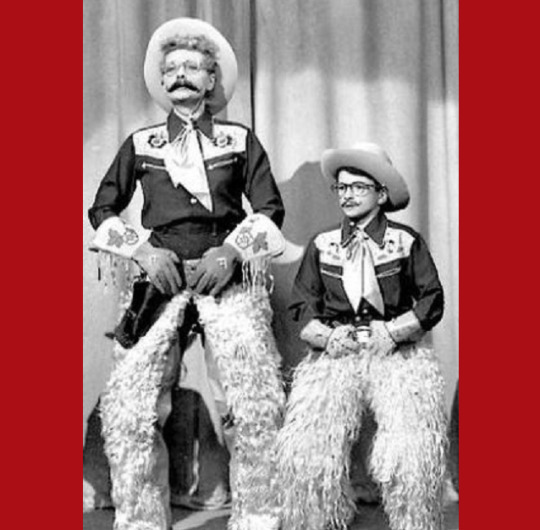
Sammy Ogg was born on October 30, 1939 in Lexington, Virginia, although his family, including his older brother Jimmy, soon moved to California. He is best remembered by Lucy fans for playing one of the mischievous Hudson Twins on a memorable season one episode of “I Love Lucy.”
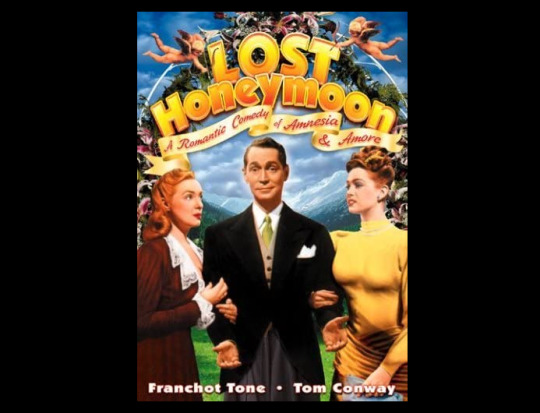
He made his screen debut playing a tough kid (uncredited) in the 1947 film Lost Honeymoon starring Franchot Tone. He was seven years old. In 1951 he made two more uncredited film appearances; in The Day The Earth Stood Still and Week-End With Father. He also had an uncredited role in Cecil B. DeMille’s The Greatest Show on Earth. The 1952 circus film nearly starred Lucille Ball, but she had to withdraw due to pregnancy. It wasn’t long, however, before the two would share a screen credit.
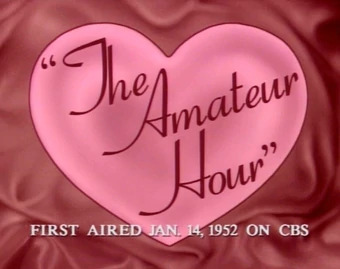
Looking for extra money to pay for a dress she’s purchased, Lucy is hired to babysit by Mrs. Hudson. What Mrs. Hudson doesn’t tell Lucy is that she has two sons, not one - and that both are holy terrors!
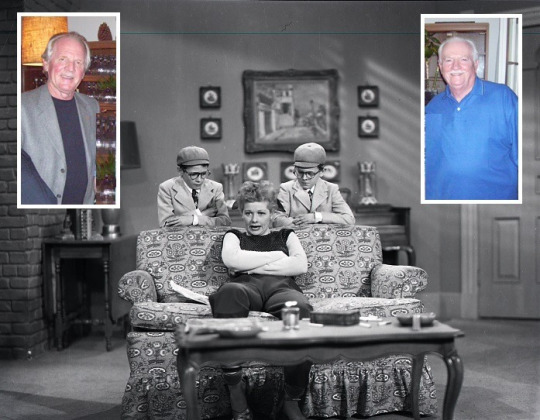
Ogg (right) played Jimmy Hudson opposite David Stollery as Timmy. The two actors were not related and were made to look like twins using costumes and make-up.
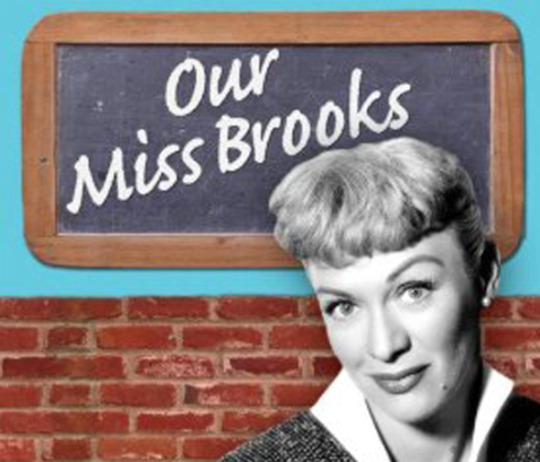
On Christmas Day 1953, Ogg was seen on “Our Miss Brooks” (filmed at Desilu) starring Gale Gordon and a cast full of “I Love Lucy” performers.
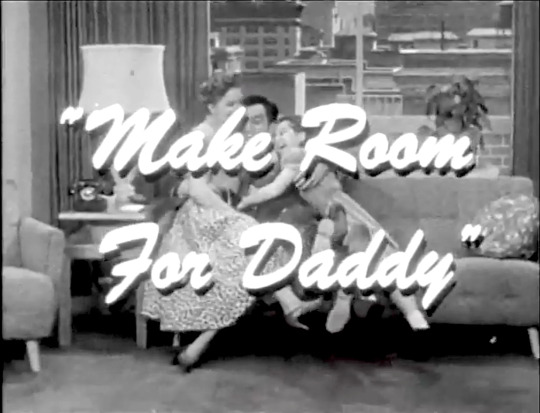
The following year, he played the first date of Terry Williams, youngest daughter on “The Danny Thomas Show” (aka “Make Room for Danny”) filmed at Desilu. This was several years before the show changed networks and did a cross-over with “The Lucy-Desi Comedy Hour.”

From 1955 to 1957 Ogg played Joe in several “Spin and Marty” films and television shows alongside his Lucy ‘twin’ David Stollery, who played Marty in the Disney production.
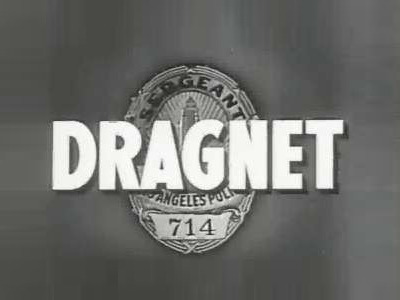
From 1952 to 1959, Ogg made seven appearances on the series “Dragnet,” each time as a different character.
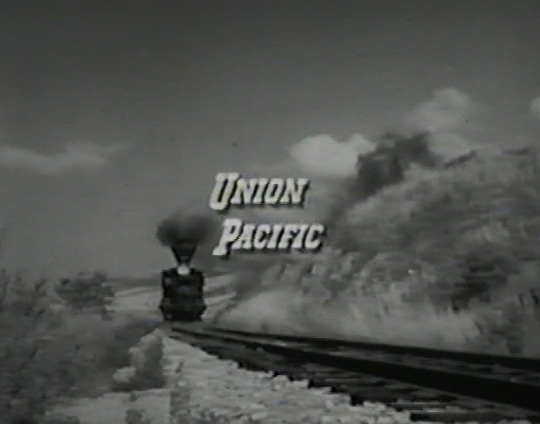
His penultimate screen appearance was on the series “Union Pacific” with his older brother Jimmy Ogg (1929-86).
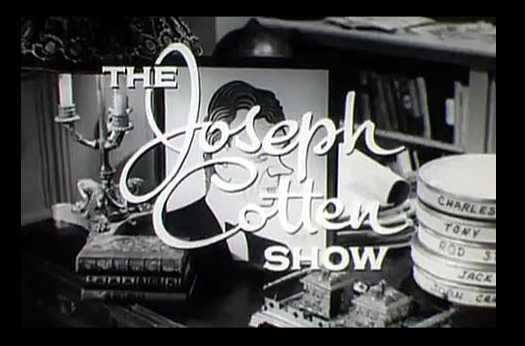
His final screen appearance, in July 1959, was in “The Joseph Cotten Show: On Trial” starring Rod Steiger.
Sammy Ogg left show business and became a minister.
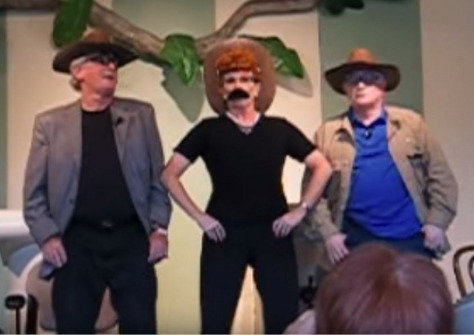
In 2007, Hudson Twins David Stollery (age 66) and Sammy Ogg (age 68) sang “Ragtime Cowboy Joe” with Lucy-impersonator Diane Vincent on the Tropicana set at the Lucy-Desi Museum in Jamestown, New York.

The special event was part of Lucy-Desi Days.
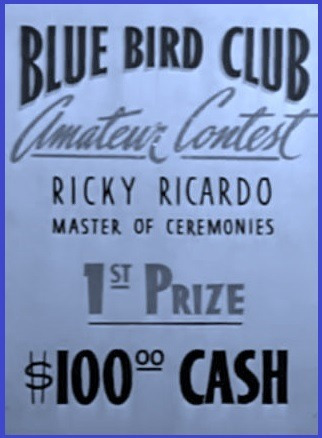
#I love Lucy#Sammy Ogg#Lucille Ball#Spin and Marty#David Stollery#The Amateur Hour#Diane Vincent#Make Room for Daddy#Dragnet#Our Miss Brooks#Union Pacific#Lost Honeymoon#TV
5 notes
·
View notes
Link
EXCLUSIVE: Grey’s Anatomy has upped three recurring players, Chris Carmack, Jake Borelli and Greg Germann, to series regulars for the just picked up 16th season of the popular medical drama. (Grey’s Anatomy received a two-year renewal for Seasons 16 and 17)
Germann and Borelli has been recurring on the show for the past two seasons, while Carmack joined at the beginning of the current 15th season.
“Chris, Jake, and Greg have been recurring for us as guest stars and have popped as fan favorites,” said Grey’s Anatomy showrunner Krista Vernoff. “We are excited to continue revealing their characters and we are beyond thrilled to welcome them to the Grey’s Anatomy family.”
Ally McBeal alum Germann plays Dr. Thomas Koracick, a brilliant neurosurgeon who is unapologetic in his arrogance, and in his romantic pursuits.
Borelli plays intern Levi “Glasses“ Schmitt, who is part of a major LGBTQ storyline on Grey’s with the introduction of Grey Sloan Memorial Hospital’s first openly gay male character, Dr. Nico Kim (Alex Landi). Borelli’s character became part of the series’ first same-sex relationship involving two male doctors when Levi and Nico shared a kiss in an elevator. Moments after the episode aired in November, Borelli publicly came out as a gay man on Instagram.
Carmack plays Dr. Atticus Lincoln a.k.a. Link, an ortho surgeon with a painful past and an optimistic outlook. He appeared in 20 episodes in his maiden season on the show. This is the second time Carmack has made strong first impression. He also started as a recurring on the first season of Nashville, with his character Will Lexington quickly emerging as a fan favorite and Carmack getting promoted to a series regular for Season 2.
Germann, who also has been recurring on $1 for CBS All Access as well as both seasons of Friends From College for Netflix, is repped by Abrams Artists Agency and managed by Silver Lining Entertainment.
#grey's anatomy#greg germann#Chris Carmack#Jake Borelli#news#deadline#tom koracick#levi schmitt#Atticus Link Lincoln
135 notes
·
View notes
Text
Family History Adventures, Part 2
So I think I’ll include the disclaimer that this is very, VERY light research. I literally just did very general scans of documents on Ancestry to see if they looked like plausible leads and left it at that. I’ll be doing a much deeper dive into each ancestor’s story later and adding or removing lines as the evidence demands. Right now the goal is to create a guide for naming characters in my Revolution books. So, any of this information could turn out to be a false lead, but I am accepting that. Until proven otherwise by my own research these are the ancestors I am embracing.
To begin, here are the top five male and female names (ick, I don’t like categorizing them like that but it’s the easiest way to keep shit organized).
Of the 228 unique male line names, the top five is currently held by:
John (79)
Joseph (46)
Thomas (45)
James (40)
William (38)
Johan made a good run for a while, but could never catch the leaders. No one will catch John. Ever. Everyone else is fighting for second place now.
Of the 180 (quite the lack of creativity) unique female line names, the top five goes to:
Elizabeth (77)
Mary (71)
Sarah (58)
Hannah (47)
Abigail (41)
I’m absolutely going to collect the cool, less-common names into a post at the end of this, too.
Now for the crazy/weird/interesting/fun/not-fun/what-the-fuck stuff:
Holy shit am I descended from a LOT of reverends.
Also a good number of doctors who were doing their best.
I lost track if the number of lines that went back to either a knight or a member of Parliament. This is strange to me (even though my paternal grandfather’s side has an illegitimate royalty line that I’m not allowed to recognize but do anyway and have spent ages sorting that all out). There were at least six.
There’s a rumored privateer I have yet to confirm.
One of the noble English dudes was someone named James Erskine, Lord Grange, descended of the Earls of Mar. There are some strange disappearances involving him apparently?
One of my family lines has a motto that was “be just and fear not” and I really like it.
I had the experience of reading one of my great-grandfathers’ indenture document. That was a strict life.
One great-grandfather was a standard bearer for the “Ancient and Honorable Artillery Company.”
I supposedly had a great-grandfather who was at Bunker Hill. I need to dig deeper to see if it was possible based on his service.
Did confirm one great-grandfather was at Saratoga and was possibly at Lexington or Concord.
So many militias in so many wars.
Someone labeled as “Gentleman?”
There’s the frustration of trying to decide which of three generations bearing THE SAME GODDAMN NAME JESUS CHRIST STOP THAT was at the Battle of Sag Harbor. The Thomas the documentation is attached to on Ancestry was 97 years old in 1777. His son, also Thomas, was 67. Possible, but still not super likely. I’m assuming a grandson, also named Thomas, was the one there. [I’m descended from a different son, so I’m just assuming the name carried on to a third generation.] I’ll need to check for pension records or something to check spouse names against the info, though. That’ll help.
There’s the weird two-theory story of one great-grandfather. His daughter’s account states he was essentially kidnapped from a German port and brought to America, then forced into indenture to pay off the voyage he never asked for. Another theory was that came to America to avoid military service, then fought in the Revolution, claiming he was with Ethan Allen at Fort Ticonderoga and at Monmouth. I can’t find a single military record. Maybe it’s there somewhere, but a quick search brought me no muster rolls with anything even close to his name. I believe the first story at this time.
At least two great-grandfathers died in (separate) shipwrecks. This distressed me for some reason.
Then there’s the mysterious non-existence of James Dillard. There was a real one). But one was “a hero of the American Revolution” (he was a 2nd lieutenant who resigned at Valley Forge, though he possibly went on to militia service, as he’s listed as a captain on some sources so I don’t know the reality quite yet) and another just... didn’t exist. It was supposed to be his great grandfather or something, who was, according to the rumor, some kind of official, king-appointed head honcho at Jamestown. I thought, “huh, this seems like something I should be able to Google.” So I did. One of the first things I found was a post where a genealogist had systematically disproved his existence by looking at every record possible from the time. Nothing exists that proves he was a real person. This is the weirdest thing I’ve found so far.
Probably the thing that hit me hardest was learning Martha Carrier, one of the women killed during the Salem Witch Trials, was my 12th-great-grandmother. I had to stop working and take a break for a while.
Apparently I’m also a Mayflower descendant like twice over, possibly three times. Two lines go back to John Howland and Elizabeth Tilley, while one line might go back to Thomas Rogers but I feel less sure of that one.
Can’t wait to see what adventures my mom’s line has in store.
1 note
·
View note
Text
The Immoral Lures Of Cincinnati’s Public Library
Throughout the history of Cincinnati, there were a great many “occasions of sin” ready to entrap young people and reduce their moral fortitude to wicked ashes. Houses of prostitution and saloons obviously spread their snares, but so did billiard parlors, theaters, circuses and amusement parks. Modern readers may be shocked to learn that Cincinnati spent several decades concerned about the lures of temptation offered by the Public Library.
On first impression, one might believe that this concern had something to do with literature, because Cincinnati still gets in a huff about literature. It is true that early librarians had to regularly explain that contemporary novels were not intended to guide Cincinnati youth onto the primrose path to perdition. Although Cincinnati begrudgingly accepted modern fiction as somewhat acceptable reading matter for young people, “immoral” books were another matter entirely, as the Cincinnati Gazette [30 July 1881] thundered:
“ . . . there are upon the shelves of the Public Library, intended for general circulation, books of an improper character full of moral poison . . . the road to ruin begins, in many cases, right at the counter of the Public Library, an institution sustained by taxation and under the control of the Board of Education.”
But no, the really big concern about the Public Library was the ability of men and women to meet in the alcoves to plot sexual escapades of unimaginable depravity.
Seriously.
Blaming the head librarian Thomas Vickers for this lascivious behavior, an anonymous correspondent fired off an accusatory letter to the Cincinnati Enquirer [27 October 1874]:
“I am able to prove . . . that the Library Building is frequented by prostitutes, and that it is used as a place of assignation by young girls. It is a general rendezvous for people who are on the loose. I know a number of young men who boast of the facility which the Library has afforded them in their nefarious business – all under the administration of the austere Vickers.”
Librarian Vickers instituted strict rules to ensure that the sexes were separated as distantly as possible in the Library. Men and women, for instance, received the books they requested at separate desks, and women had a dedicated reading room to keep nefarious men away. Unfortunately, a necessary remodeling project resulted in men and women collecting books at the same desk, and the Cincinnati Daily Star [12 January 1878] despaired of the consequences for Queen City morals:
“It will be remembered that when Mr. Vickers was appointed Librarian, it was found necessary, from an existing evil – a tendency to make the Library a rendezvous for the purpose of carrying on flirtations between the sexes – to prevent, by railings and strict regulations, the intermingling of the sexes. By the new system these barriers are removed, and all sexes and conditions of humanity are now brought into direct contact. This will be regretted by many.”
Part of the difficulty in maintaining moral quarantine was the human element – specifically the inability of the guardians of morality to determine at a glance who was innocent and who was depraved. The Cincinnati Gazette [22 August 1874] asserted that the blame did not lie with the designated enforcers, the Library watchmen:
“They can distinguish between a man and a woman, but their eyes are not sufficiently educated to tell whether a certain woman is the wife of a certain man. They are obliged to enforce the letter of the law – to make all the men take the one side, and all the women the other. Nearly every day some man becomes incensed at these watchmen, but if the former will only consider a moment, they will see that the latter are only doing their duty.”
All of this worry might have been nothing but local tut-tutting had Cincinnati’s Public Library not featured in one of the most celebrated breach-of-promise lawsuits in the entire 19th Century. A young Kentucky maiden sued a United States Representative from Kentucky named W.C.P. Breckinridge. Congressman Breckinridge, according to the plaintiff, Madeline Pollard, stalked her while she was a student at Cincinnati’s Wesleyan College for Women. He talked her into accompanying him on a carriage ride, during which he molested her, then arranged an assignation the next day at the Cincinnati Public Library.

According to a book on the case, “The Celebrated Case of Col. W.C.P. Breckinridge and Madeline Pollard,” by Fayette Lexington, published in 1894, Pollard testified:
“I went to meet him at the public library, as he had promised that if I would come there the next day he would attend to that matter for me. I went to the library and he told me that he could not talk with me there, because the rules prohibited conversation, and suggested that I go with him in the cars to the house of a friend, where he could talk over my business with me and determine what could be done. He took me in the cars to a point as near George street as the cars ran—a neighborhood with which I was wholly unfamiliar, and in which I had never been—and walked with me to a house which he represented was the house of a friend of his. We were admitted and shown into a little parlor by a woman who then withdrew.”
George Street happened to be the epicenter of Cincinnati’s red light district, and the house Breckinridge took Pollard to was a brothel, in which he maintained her for several days before absconding with her to Lexington.
Breckinridge promised to marry Pollard after she bore him two children. She believed him so much that she published engagement announcements in several newspapers. He very publicly married another woman, so Pollard sued – and won.
All because of an assignation at the Cincinnati Public Library.

25 notes
·
View notes
Text
Broken Promises- Book Review

Hi! Broken Promises is Part 1 of The Broken Trilogy by S.A Thomas. It is a romantic, slow-burn story. I’ll start off by saying that this is a well-written book and I liked it! There were a lot of likeable aspects but hands-down the best one is Nyah. You can’t ask for a better female protagonist. Keep reading if you want to know whether this book is for you!
The Plot/ Summary
Nyah Rodriguez is a single mother and the manager of the Lexington Hotel. Abandoned to an orphanage as a baby, she has built a secure life for herself and her son, Lucas, and she isn’t going to let some entitled jerk derail her.
Caleb Evans is the gorgeous heir to a business empire. Destined to take over one day, he must learn the ropes, and Nyah will be his teacher. But Caleb is not a man who takes instructions easily.
From the moment their paths cross, sparks fly. The spoiled playboy soon learns there’s at least one person in the world who’s not intimidated by him. But while their fiery working relationship turns to friendship and more, dark secrets from Nyah’s past threaten to overwhelm them.
Book Review:
I enjoyed this book. The relationship between Nyah and Caleb was well-written as is the entire book. I especially liked that the book says slow-burn and actually delivers. They remain friends for a long while and I absolutely loved Nyah’s strength. I did wish she would rely on her friends at times but understood why she forced herself to be so self-reliant.
Read this book if-
You like great character development in the male protagonist and a strong female lead.
You are looking for a adult romance book that does not have explicit scenes for a change.
You enjoy reading about self-reliant single parents.
You enjoy dual POV books.
Pass over this book if-
You dislike the miscommunication and the evil mother interfering tropes. There was a lot of miscommunication at the end that did irk me.
If you will not like a slightly predictable story line and won’t enjoy reading about spoilt playboy reformations.
Despite it giving off those vibes, this book is not an enemies to lovers book so don’t begin it if you’re expecting one.
All-in-all, this book was a read that delivered. Thank you to the author for giving me a digital ARC of this book to read and review!
“Bookmarks are for quitters.”
#blog#book blog#book blogger#book reviews#reading#romance#broken promises#bookworm#bibliophile#books#book review#book quotes#booklr
0 notes
Text
THE WHIG CONTEXT
This posting makes certain assumptions. Most important, it assumes that the reader has reviewed the timeline this blog offers in a series of postings preceding this one. It describes the major events associated with the Whig Party in the years roughly from 1830 to 1860. As the last posting indicates, this blog will proceed to evaluate the federalist nature of that party indicating whether what happened or what the party promoted operationalized or counteracted federalist values.
Initially, this effort will rely heavily on the work of Daniel Walker Howe,[1] both directly and with the help of a review by Allen C. Guelzo.[2] To begin, one has to contextualize Howe’s work as a somewhat reaction to a line of thought that attempted to associate the main nemesis of the Whigs, that being Andrew Jackson, to a more popular image. Previous to Howe’s book, there was an effort to bind the legacy of Jackson to Franklin Roosevelt’s New Deal.
In simple terms, the picture promoted by such books as Arthur Schlesinger’s, The Age of Jackson,[3] casts Jackson as a champion of the lower classes while the Whigs represented the emerging business upper class. Howe’s work takes a different slant to describe the Whigs.
Instead of championing the Eastern elites, bent on obstructing class-leveling plan by Jackson (in the fashion later taken up by Roosevelt’s New Deal), the Whigs are portrayed by Howe as promoting the interests of small businesses and those who advanced them in the role of commercial producers.
By doing so, Whigs can be seen as transformers, optimistic enablers who seriously went about adopting the messages from religious moralists and thinkers of the dominant (mostly pro Protestant based) denominations. Of particular preferences were those ideals that bolstered personal transformation and ambitious outlooks of self-advancement (Horatio Alger comes to mind).
According to Guelzo, Howe began his effort to tell the Whig story not from the perspective of a burgeoning economic class seeking political favor, but found their mental landscape – their assumptions, values, and beliefs – a more fertile subject. And there he found the story of a group seeking to escape what was for them a dreary life that one found on the farm and instead sought one of commerce on a global stage with the promise of it being more alluring, more dynamic, and more diverse.
And with that, the Whigs introduced a more cosmopolitan perspective of the American discourse. In that description, Howe expounds on several elements. The first is “improvement” as portrayed in the Whigs’ admonishment, at an individual level, to transform oneself and, in turn, with the aim of transforming the national ambition.
That was an ambition resting on a national perspective (as opposed to local, limited views), on a sense of morality replete with duties (as opposed to equality and rights), and on a commitment to the unity of the nation (as opposed to localism or sectionalism). In hindsight, with the sectional conflict on the rise – especially over slavery and other issues – one can see a limited lifespan for this party.
One should remember, Jacksonian politics, even if the President riled against South Carolina’s nullification claims, favored states maintaining their prerogatives. Instead, the Whigs argued for an expanded role for the federal government. Guelzo writes,
[I]t was the Whigs who advocated an expansive federal government – but it was a government that would seek to promote a general liberal, middle-class national welfare, promoting norms of Protestant morality and underwriting the expansion of industrial capitalism by means of government-funded transportation projects (to connect people and markets), high protective tariffs for American manufacturing, and a national banking system to regulate and standardize the American economy. Howe’s Whigs were the embodiment … of [the] upward striving, of the triumph of reason over passion, [and] of the positive liberal state … [4]
In short, they opposed Jacksonianism’s exaltation of agriculture, equating of land as the measure of wealth, and the parochial interests and perspectives of subsistence farming.
The opposing, landed people were for the most part unaffected by a fluctuating economy as experienced with the Panic of 1837, especially compared to those who were more dependent on monetized assets. The landed contingency cared little for notions of economic transformation, had little use for moral transformation, and saw the purveyors of such morals as questionable characters. Overall, such messaging and promotion were seen as encroaching on these farmers’ independence and the independence of their localities.
In terms of national politics, such localism supported the Democratic Party with its support of states’ rights. That party also found its messaging ironically appealing to immigrants, since the party was cast as the anti-middle-class lifestyle party. So, what developed was a good body of opposing views between Whigs and Democrats as to whose interests should be protected and advanced.
Howe encapsulates these diverging interests:
To put things very broadly, the Whigs proposed a society that would be economically diverse but culturally uniform; the Democrats preferred the economic uniformity of a society of small farmers and artisans but were more tolerant of cultural and moral diversity.[5]
Howe’s work affords the Whig legacy a bit of rehabilitation after Schlesinger’s book on Jackson did it so much harm. While one does not need to be a neo-Whig, one can ascribe to them a more positive role in the development of American thought.
And how does Howe’s depiction of the Whigs, to extent it is accurate, allows one to consider the degree to which the party represented federalist values?[6] The overall thrust of those values promotes social capital and civic humanism. That is,
· Social capital means a societal quality characterized by having an active, public-spirited citizenry, egalitarian political relations, and a social environment of trust and cooperation.[7]
· Civic humanism is defined as a communal bias which holds that citizens are, through the polity, in a partnership. As such, the individual is disposed to sacrifice personal interest for the common good or, if not, at least arrange for personal interests not to be antagonistic to the common good.[8]
Recently, this blogger has been introduced to a new term, that being “herrenvolk.” According to a Wikipedia definition, one has a Herrenvolk democracy when only the majority ethnic group takes part in the government. Minorities are disenfranchised. Essayist, Thomas Brown, attributes this view to Jacksonians during those antebellum years.[9] Whigs represented a more inclusive view through their ideological attachment to a civic humanism and their political impartiality as personal views are called upon to form a sufficient level of social capital.
So, to evaluate the Whigs based on the information offered in this posting, one can attribute to them a strong federalist bias, especially as it is expressed with a national perspective. Given how the US originated, of bringing together ever-growing polities – more local arrangements coming together to first form regional entities, then state entities, and finally a national entity – one can readily understand how at each stage certain challenges were faced as common folks were asked to broaden their social views. The Whigs took on the more inclusive disposition.
This expansion had various elements, including from how it was holistically experienced to how such individual policies – the establishment of a national bank or the imposition of tariffs – to how it affected people’s daily lives. This blog will review these more individual elements in the next posting.
[1] Daniel Walker Howe, The Political Culture of the American Whigs (Chicago, IL: University of Chicago Press, 1979).
[2] Allen C. Guelzo, “The Rise and Fall of the American Whig Party: Jacksonian Politics and the Onset of the Civil War by Michael Holt,” Journal of the Abraham Lincoln Association, 22, 2 (2001), accessed August 19, 2021,
https://quod.lib.umich.edu/j/jala/2629860.0022.206/--rise-and-fall-of-the-american-whig-party-jacksonian-politics?rgn=main;view=fulltext .
[3] Arthur M. Schlesinger, Jr. The Age of Jackson (Boston, MA: Little, Brown, and Company, Bay Back Books, 1988).
[4] Guelzo, “The Rise and Fall of the American Whig Party: Jacksonian Politics and the Onset of the Civil War by Michael Holt,” Journal of the Abraham Lincoln Association.
[5] Howe, The Political Culture of the American Whigs, 20.
[6] This blogger, in his published book, Toward a Federated Nation, proposes a hierarchy federalist values. It takes the following form: Trump Value: societal welfare (through societal survival and societal health); Key Instrumental Values: constitutional integrity (as federal liberty), equality (as regulated equality), communal democracy, democratic pluralism and diversity, compact-al arrangements, earned trust, loyalty, patriotism, justice; Operational Values (partial listing): political engagement, due process, legitimate authority, critical and transparent deliberation (or collaboration), inclusive problem-solving, countervailing powers, privacy, universality of human rights, tolerance, non-violence, responsible ambition, teamwork, consideration of others, economic sufficiency, security, localism, expertise.
[7] Robert D. Putnam, Bowling Alone: The Collapse and Revival of American Community (New York, NY: Simon & Schuster, 2000).
[8] See Isaac Kramnick, “John Locke and Liberal Constitutionalism,” in Major Problems in American Constitutional History, Volume I: The Colonial Era Through Reconstruction, edited by Kermit L. Hall (Lexington, MA: D. C. Heath and Company, 1992), 97-114.
[9] Guelzo, “The Rise and Fall of the American Whig Party: Jacksonian Politics and the Onset of the Civil War by Michael Holt,” Journal of the Abraham Lincoln Association.
#Whig Party#antebellum politics#Andrew Jackson#social capital#civic humanism#herrenvolk#federalist values#civics education#American history#social studies
1 note
·
View note
Text
Week 5
Ancient Queens and Their Descendants: Penelope
This week we shall continue exploring the idea of the hero and the epic tradition, but focusing on heroines, to consider how Penelope, the character from the Odyssey, has been re-visited in later periods.
Homer, The Odyssey (read in particular Books 19 and 23, where Penelope confronts Odysseus)
Emily Wilson’s translation of the same sections of the Odyssey [Course Pack]
Ovid, "Penelope to Odysseus" (in Heroides) [Course Pack]
Boccaccio, "Penelope, Wife of Odysseus" from Famous Women [Course Pack]
Virginia Woolf, A Room of One’s Own (chapters 1 and 3) [Course Pack] (but do read it the entire book if you can)
James Joyce, Ulysses (read ‘Penelope’, the last episode (pp. 690-732 in Johnson))
Mary Beard, Women and Power: A Manifesto (excerpts) [Course Pack] (though I do recommend buying and reading the whole text)
On Penelope & women in the Odyssey
Clayton, Barbara, A Penelopean Poetics: Reweaving the Feminine in Homer’s Odyssey (Oxford: Lexington, 2004)
Cohen, Beth (ed.), The Distaff Side: Representing the Female in Homer’s Odyssey (Oxford: Oxford University Press, 1995)
Doherty, Lillian E., "The Snares of the Odyssey: A Feminist Narratological Reading", in Texts, Ideas, and the Classics: Scholarship, Theory, and Classical Literature, ed. by S. J. Harrison (Oxford: Oxford University Press, 2001), pp. 117-133
Felson-Rubin, Regarding Penelope: From Character to Poetics (Princeton, N.J.: Princeton University Press, 1994)
Heilbrun, Carolyn, ‘What Was Penelope Unweaving?’ in Hamlet’s Mother and Other Women (New York: Columbia University Press, 1990), pp. 103-11
Heitman, Richard, Taking Her Seriously: Penelope & the Plot of Homer's Odyssey (Ann Arbor: University of Michigan Press, 2005)
Katz, Marilyn Arthur, Penelope’s Renown: Meaning and Indeterminacy in the Odyssey (Princeton, NJ: Princeton University Press, 1991)
Pomeroy, Sarah, Goddesses, Whores, Wives and Slaves: Women in Classical Antiquity (London: Pimlico, 1994)
On Ovid'd Heroides
Fulkerson, Laurel, The Ovidian Heroine as Author: Reading, Writing, and Community in the Heroides (Cambridge: Cambridge University Press, 2005)
Hagedorn, Suzanne, Abandoned Women: Rewriting the Classics in Dante, Boccaccio, and Chaucer (Ann Arbor: University of Michigan Press, 2004)
Lindheim, Sara, Mail and Female: Epistolary Narrative and Desire in Ovid's Heroides (Madison: University of Wisconsin Press, 2003)
Spentzou, Efrossini, Readers and Writers in Ovid's Heroides: Transgressions of Genre and Gender (Oxford: Oxford University Press, 2003)
On reception of the classics (incl. feminist)
Hardwick, Lorna, Reception Studies: Greece and Rome (Oxford: Oxford University Press, 2003)
Hardwick, Lorna, and Christopher Stray, eds., A Companion to Classical Receptions (Oxford: Blackwell, 2011) [for feminist reception of the classics, see in particular Vanda Zajko, "'What Difference Was Made?': Feminist Models of Reception", pp. 195-206]
Heilbrun, Carolyn, ‘What Was Penelope Unweaving?’ in Hamlet’s Mother and Other Women (New York: Columbia University Press, 1990) 103-11
Hurst, Isobel, Victorian Women Writers and the Classics: The Feminine of Homer (Oxford: Oxford University Press, 2008)
Lateiner, Donald, Barbara K. Gold, and Judith Perkins, Roman Literature, Gender, and Reception (new York: Routledge, 2013)
Martindale, Charles, Redeeming the Text: Latin Poetry and the Hermeneutics of Reception (Cambridge: Cambridge University Press, 1993)
Martindale, Charles, and Richard F. Thomas, eds., Classics and the Uses of Reception (Oxford: Blackwell, 2006)
Rabinowitz, Nancy Sorkin, and Amy Richlin, eds., Feminist Theory and The Classics (London and New York: Routledge, 2010)
Zajko, Vanda, and Miriam Leonard, eds., Laughing with Medusa: Classical Myth and Feminist Thought (Oxford: Oxford University Press, 2006)
Women translating the Odyssey
https://www.newyorker.com/books/page-turner/a-translators-reckoning-with-the-women-of-the-odyssey
By Wilson, on women in the Odyssey.
https://www.theguardian.com/books/2017/jul/07/women-classics-translation-female-scholars-translators
Wilson on female translators of the classics more generally.
https://www.emilyrcwilson.com/emilyrcwilson-scholia
Selected excellent threads from Wilson’s twitter feed, on translations and related issues.
https://www.the-tls.co.uk/articles/public/anatolia-homer-in-turkey/amp/
On another female translator of Homer, and the Turkish reception of the Iliad and Odyssey.
1 note
·
View note
Text
The Basic Principles of Historic Bed and Breakfast in Charleston
Four ‘O A few North Lake of Lexington is a gorgeous turn-of-the-century dwelling that offers a novel and stylish venue for virtually any Specific event. In-built 1914 by Thomas H.
Kiawah is another option for h2o sports, boating, and swimming. The Kiawah’s Beachwaler Park is usually touted as among the finest shorelines on the globe.
Pettigru Area attributes wonderfully appointed prevalent rooms, six elegant visitor rooms, plus a peaceful English back garden. Our spot is inside going for walks length to all the downtown sights.
I might like to talk to you about Ministry Meals. A news a long time in the past I recognized a food pantry, and I'd love to see how we would manage to collaborate.

This historic residence has been re-opened by a fresh owner/personnel for just a few months and we have been pleased to invest several...
Imagine yourself exchanging vows with the soulmate surrounded by a character in a yard… Becoming released into your reception like royalty from your balcony of the historic mansion… Dancing you're initially
The Daniel Island Club presents a singular lawn overlooking the truly magical marsh. The roomy ballroom which will seat close to 300 people is a gemstone.
Francis Marion Lodge in Charleston is at the guts of the city’s social, small business, and community lifetime because opening in 1924. Generations of Charlestonians have marked significant milestones in their life inside our historic ballrooms. Resort/Vacation resort/Lodge
Check out the Charleston City Market, the beating coronary heart in the Charleston Historic District. This 200-year-outdated metropolis marketplace hosts many hundreds of suppliers and is a superb spot to discover handmade merchandise, such as the famed sweetgrass baskets which can be braided as you check out.
Magnolia Plantation and Gardens was founded in 1676 and for centuries has been a popular place for several different occasions. If you like gardens and wish to have an outside wedding, this position is a positive guess. The romantic gardens of Magnolia Plantation typically make the lists of the greatest gardens in the area, condition, and state. There are numerous exclusive destinations through the entire gardens where you may have your wedding ceremony, reception, rehearsal meal, and many websites more. The lined Areas in the Carriage Residence, Conservatory, Veranda, and Pavilion all present a wonderful backdrop with huge oak trees, gorgeous bouquets, waterfront sights, and more at Every internet site. You can also find beautiful lawns accessible if you like an outside event.
#16 Founders Corridor is additionally a favorite For several within the screened-in patio for the fireplace into the effectively manicured garden, and concrete pad and courtyard This is location can accommodate as much as three hundred guests with its entirely Geared up catering kitchen.
Built in 1843 as A non-public mansion and owning just lately been through a multi-million dollar restoration, this grand but personal eleven-home boutique hotel of twenty South Battery is usually a singular approach to practical experience history in modern-day luxurious lodging.
Renaissance Charleston Historic District Hotel, a Marriott-managed home in downtown Charleston, is regularly applied to be a wedding location. The House can support everything from a small, intimate ceremony to an occasion with a longer guest checklist. The Charleston Ballroom may be used for more substantial gatherings and might delay to a hundred and fifty persons. There are plenty of lesser suites, halls and other rooms that may be utilized for smaller-sized receptions, rehearsal dinners, or other activities. The reception room offers a bar and wait-around workers for serving a meal or drinks. The home's occasion coordinator will help you kind all of the details to ensure everything goes as anticipated.
#6 Legare Waring Dwelling, located in Charles Landing, a wilderness of wedding vibes, in all places you walk can be a picturesque spot, the vast garden with draped oaks within the qualifications is a breathless magical all in one, the out of doors reception either beneath the tent or without the need of a single is a wedding soiree your family and friends won't ever neglect.
0 notes